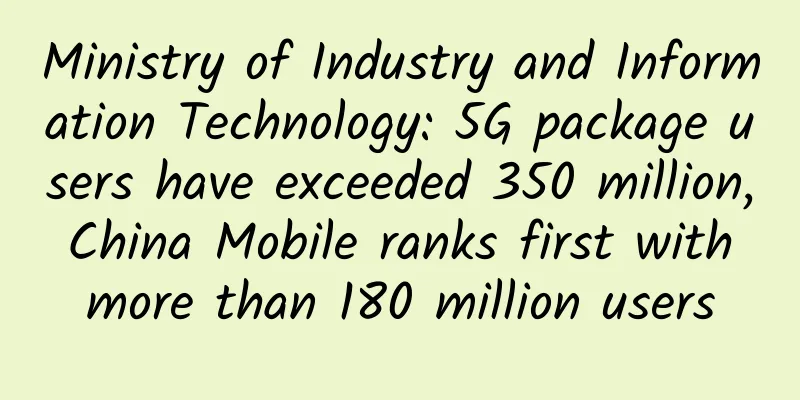Competition and Cooperation among the Three Major Industrial Internet Camps

|
"Short-term cooperation, long-term competition." Regarding the relationship between the three major camps in the industrial Internet track, a scholar engaged in industrial Internet research gave this answer.
In 2018, the Industrial Internet was written into the Government Work Report for the first time, and the construction of the Industrial Internet gradually reached its peak in 2021. Compared with European and American countries, although the development of industrial Internet in my country started late, in the past two years, under the influence of the epidemic, the pace of digital transformation of industrial manufacturing has accelerated, which has suddenly brought the industrial Internet into fashion and also attracted large and small technology companies to follow suit, including Internet giants led by BAT, SaaS software providers such as UFIDA and Dingjie, and industrial manufacturing giants represented by Haier and XCMG. In the industrial Internet track, people like to divide industrial Internet service providers into "first echelon, second echelon, and third echelon" based on the dimensions of enterprise scale, scientific research level, and entry time. The three echelons have inherent advantages in their layout due to their inherent business attributes, and they continue to deepen their own fields. So after the industrial Internet has become popular, can the three echelons support the industrial Internet alone with their own advantages? There are many different opinions in the industry. Idealists: The cooperation between BAT and software manufacturers is to expand their own ecosystem and successfully enter the industrial track. Realists: The three major camps are more of a competitive relationship, and their development ideas are different. Radicals: Behind cooperation is competition, and the competitive relationship will intensify. In the near future, the two parties to the cooperation may become opponents. BAT Internet giants just want to "snowball"?When entering the industrial Internet, Internet giants face the bitterness of "each industry is like a different world". In the industry, it is natural for Internet giants to enter the industrial Internet. As the trident of the Internet, BAT has always been shrouded in the halo of "top", with Tencent focusing on social networking, Alibaba focusing on e-commerce, and Baidu focusing on search. Most people think that BAT can do everything and can chew even the hard bones, but for them, the industrial Internet is a brand new track, and it is extremely difficult to do well in this game alone. In terms of the time of entry, Baidu, Alibaba, and Tencent entered the industrial Internet in 2017, 2018, and 2019 respectively, and entered from different tracks. After investigating the market, Baidu chose to start with industrial AI quality inspection and developed the Baidu AI Quality Inspection Cloud. Based on its experience in finance and e-commerce, Alibaba started with the apparel industry and successively released products such as ET Industrial Brain, SupET, Feilong, Feixiang Industrial Internet Platform, and Rhino Factory. As a latecomer, Tencent has been particularly active in the industrial Internet sector in recent years. After the "930 Reform" in 2018, Tencent formed a new business group, the Cloud and Smart Industries Business Group (CSIG), and chose to fully embrace the industrial Internet; in 2019, Tencent Cloud released the WeMake intelligent manufacturing solution and announced the "511" ecological partner program, working with 100 partners in the five links of the end-to-end value chain of "research, production, supply, sales, and service" to create more than 1,000 solutions and industrial apps. In the past two years, Tencent has been deeply implementing the ecological partner plan. By introducing the resources of the Yunqi Base Qianfan Plan, SaaS Accelerator, and Qingteng University, and in-depth cooperation with industrial manufacturing companies such as Foxconn and Sany Heavy Industry, and software manufacturers such as Beiming Software and Donghua Software, it has launched deeply integrated solutions for vertical industries. According to official data released by Tencent Cloud, it currently has more than 9,000 partners and has launched more than 400 joint solutions in 30 industries. Li Xiangqian, general manager of Tencent Industrial Cloud, explained: "Foxconn has rich experience in the manufacturing ecosystem. The upstream and downstream industries and tens of thousands of suppliers can all share the dividends of the industrial Internet in a centralized manner. Tencent has opened up capabilities such as mini-programs, enterprise WeChat, and agile development. Through the superposition of the two ecosystems, we can truly achieve the effect of 1+1 being greater than 2." Li Qiang also mentioned in a previous interview that Tencent still has a lot to learn from other companies when it comes to the industrial Internet. In addition, Chen Guangyu mentioned that a good cooperative relationship has been established with leading companies, and the company will continue to deepen and gradually expand cooperation with mid-tier companies in the future. According to Leifeng.com, Tencent Cloud's overall business grew rapidly in 2020, and the business in the ecological field grew even faster, which is a manifestation of Tencent Cloud's continued openness and emphasis on the power of partners. These achievements are mainly due to Tencent Cloud's seven major initiatives: product co-creation, open innovation of cooperation models, stable and rich policies and operation optimization, continuous improvement of service support, opening up more C-end resources, cloud incubation, and ecological collaboration. Baidu, Alibaba and Tencent have similar strategies. Baidu Smart Cloud has developed more than 50 cross-industry vertical scenario intelligent solutions with more than 30 partners, and has successively reached cooperation with leading manufacturing companies such as Baosteel, Geely and China National Building Materials Group. Alibaba's industrial Internet platform was also developed in collaboration with industry leaders. Baidu Vice President Li Shuo said: "In the process of promoting the implementation of the entire industrial Internet, Baidu has worked closely with its partners to improve the digitalization level of industrial enterprises and industrial chains through the one-company-one-file and one-chain-one-file model, creating measurable value." It seems that "cooperation" has become BAT's magic weapon for success in the field of industrial Internet. In fact, cooperation also paves the way for a better "snowball" effect. Regardless of technology, ecology, or products, BAT chooses to cooperate with ecological partners to build, and the cooperation targets are mainly industrial enterprises. After all, industry know-how is a difficult problem that BAT giants urgently need to solve. Judging from the current progress and achievements of BAT, the win-win cooperation strategy has worked. Wang Hongzhi from Harbin Institute of Technology believes that the cooperation strategy implemented by BAT is to expand its own ecology. Since the industrial Internet and the Internet are very different, whether they can successfully enter the industrial track needs further study. The "conspiracy theory" behind the cooperation between traditional software vendorsAs a new thing, the industrial Internet has not only attracted BAT, but also brought new opportunities to traditional software manufacturers. In the industrial Internet track, traditional software manufacturers are labeled as ecological partners of Internet enterprises. These enterprises mainly provide SaaS services to manufacturing companies. The head of a traditional software company that has transformed into a SaaS service provider told Leifeng.com, "Driven by the development of informatization and digitalization, developing SaaS products is the main theme of the future development of every traditional software company." This also reflects the aspirations of traditional software companies to transform into industrial Internet companies. At present, a new batch of successfully transformed industrial Internet manufacturers have emerged in China, such as UFIDA, Dingjie, and Beiming. The most typical one is UFIDA Network, a software manufacturer focusing on ERP. It started with financial management software, and then extended to industrial software such as MES production control software and PLM R&D and design software. It has continued to deepen its presence in the industrial field and developed the UFIDA Jingzhi Industrial Internet Platform. With the deepening of industrial digital transformation, UFIDA has also launched a series of in-depth cooperation with Tencent Cloud, Alibaba Cloud, etc. Some time ago, at the Tencent Cloud Digital Ecosystem Conference, UFIDA joined hands with Tencent Cloud and Intel to release the "U9 cloud intelligent manufacturing joint solution". This solution takes U9 cloud as the core, relies on Tencent Cloud, and combines Intel's underlying computing power optimization to achieve the overall cloudification of complex discrete manufacturing industries, meeting various complex business scenarios of growing manufacturing companies going to the cloud. Software manufacturers such as UFIDA and Beiming, which started out as ERP companies, are typical To B companies. In the process, they have accumulated a diverse customer base and service experience, forming an advantage in software manufacturers' layout of the industrial Internet. The cooperation with Internet giants is mainly to make up for their own shortcomings. After all, traditional IT service providers such as Tencent and Alibaba have obvious advantages in algorithms, computing power and data processing (IaaS). According to Ye Xiulin, deputy general manager of UFIDA's intelligent manufacturing division, UFIDA has a lot of collaboration with Huawei and Tencent, mainly because their businesses have minimal overlap. Similar to UFIDA, Beiming Software is also a leading partner of Tencent Cloud. The two companies also have in-depth cooperation in the field of industrial Internet, including brand output, technology empowerment, ecological integration product development, and common growth of enterprises. Wang Jinhong, chairman of Beiming Digital and senior vice president of Beiming Software, said in an interview with Leifeng.com that the industrial Internet platform cannot be fully provided by one or two companies. At this time, it is necessary to join forces with more ecological partners to jointly build such resources and capabilities to better help enterprises carry out digital transformation. " In fact, whether it is an Internet giant or a traditional software manufacturer, what they are looking at is the new dividends that the new track brings to the company, and the most important thing for these companies to enter the market is to become the leader in the field. Relevant people stated that the industrial Internet track, especially in terms of platforms, is an obvious competitive relationship. Each company hopes to establish its own ecological partners and SaaS product system based on its own PaaS platform, forming thousands to tens of thousands of companies. Complementary advantages are the original intention of cooperation, and the ultimate goal is to expand its own ecology and broaden customer channels through cooperation. It is very difficult for traditional manufacturing companies to go it alone.Traditional industrial manufacturing understands manufacturing better. Compared with BAT and traditional software manufacturers, traditional manufacturing companies are the third echelon of the industrial Internet and are also known as industry "unicorns." There is no doubt that my country, as a major industrial manufacturing country, has the strongest demand for digital transformation. However, due to the large number of industrial types and the complexity of the categories, the difficulty and complexity of the transformation have been greatly increased. Some experts have said that it usually takes 3 to 5 years to complete the digital transformation of industry. This means that a lot of manpower, material resources and financial resources will be spent on this, which makes many manufacturing companies hesitate. However, in the new era where everything needs to be transformed, in order not to fall behind, successfully catch the ride of digitalization, and achieve the goal of "reducing costs, increasing efficiency and improving quality" more quickly, manufacturing companies choose to build the industrial Internet on their own. Many people may ask this question: "Traditional manufacturing companies only know how to produce, how can they do digitalization well?" But the reality slaps these people in the face. Platforms such as the Hanyun Industrial Internet platform created by XCMG Hanyun and the COSMOPlat Industrial Internet platform created by Haier CoaXess are both included in the national dual-cross platform. These are successful cases of traditional enterprises transforming into industrial Internet. Compared with the first two, traditional manufacturing has the confidence of "knowing yourself and knowing your enemy, and winning every battle". Its biggest advantage is that it has rich industry know-how. They know very well where the pain points of enterprise transformation are? How to upgrade production lines and plan the layout? This is also something that the first two types of companies cannot match in the short term. In view of this, BAT and traditional software companies can only make up for it through long-term cooperation with ecological partners. Wang Baoyou, chief engineer of the Industrial Internet Research Institute, said that as traditional manufacturing companies, Haier and XCMG's products were incubated in the development of their own digital transformation, were born in the fields of equipment automation and OT, and were connected to IT systems from the bottom up. They have greater technological advantages in the OT field. Some people also believe that in addition to industry know-how, the Industrial Internet emphasizes the deep integration of IT and OT. Obviously, in terms of IT, traditional manufacturing companies are far from being comparable to BAT and software vendors. In response to this question, Zhang Qiliang, founder of XCMG Hanyun, told Leifeng.com (public account: Leifeng.com) that he had also experienced failure when he first started working on the industrial Internet. Faced with technical deficiencies, he often cooperated with universities to achieve the integration of production, teaching and research, and to input high-end talents into the industry, thereby continuously expanding his own scientific research team. Unlike BAT and software manufacturers, most manufacturing industries start with their own digitalization and then promote their successful experiences, which also increases the persuasiveness of the platform. It is understood that XCMG Hanyun Industrial Internet Platform, as China's first independently developed industrial Internet platform, has been rated as a dual-cross platform for two consecutive years, and has successfully enabled more than 80 industries and 20 industry sub-platforms, serving more than 20,000 companies. Wang Baoyou said that the service scenarios and businesses of traditional manufacturing transformed into industrial Internet are relatively clear, and there is not much overlap with the current software industry platforms, so there is not much competition yet. However, as development deepens, internal competition among companies transforming manufacturing into industrial Internet will become more intense. An industry insider told Leifeng.com that technology is not something that traditional manufacturing companies can understand in a short period of time. Many companies believe that they can accomplish it with dozens or even hundreds of people in their IT departments. In fact, this is not the case. It requires a long period of technological accumulation. Long separation will eventually bring together, long togetherness will eventually bring separationFrom the current perspective, cooperation in the industrial Internet track is only superficial, and competition is fundamental. After all, in the immature industrial Internet era, cooperation is the only way to do well, but the future of the industrial Internet is like thousands of troops crossing a single-plank bridge, where the survival of the fittest and the elimination of the weak are often few and far between. Since the Internet is an emerging sector, whether it is Internet giants with rich technical experience and resources, software manufacturers with slightly stronger technological attributes, or traditional giants with rich industrial experience, their inherent attributes are advantages, but their current disadvantages in the industrial track have forced the three major camps to maintain a good cooperative relationship. Wang Baoyou told Leifeng.com that in the tide of digitalization, the three types of companies are more in competition with each other, and their development ideas are also different. Traditional software companies hope to further transform and upgrade to information-based and digital businesses; manufacturing companies want to promote their manufacturing informationization experience; Internet companies are more focused on building general platforms. However, this kind of competition is not necessarily a bad thing. In the long run, products and solutions that are more suitable for China's industrial digital transformation will emerge. From the perspective of corporate development strategy, the three major camps will continue to increase their investment in the industrial Internet track, which will undoubtedly intensify the competition among enterprises. However, it must be said that independence behind cooperation is the ultimate goal of every enterprise. However, from the current perspective, the three major gradients are still intertwined. Will they be separated or integrated in the future? It still needs time to further confirm. This article is reproduced from Leiphone.com. If you need to reprint it, please go to Leiphone.com official website to apply for authorization. |
<<: Omdia: Global Gigabit Broadband Users to Reach 50 Million by 2022
>>: Three-minute review! A quick overview of 5G industry development trends in December 2021
Recommend
Understanding the 5G industry chain in one article
Hello everyone, I am Xiaozaojun. Today I would li...
Why choose NB-IoT when there are so many standards?
The need for communication is indispensable in ou...
SPI subsystem SPI spec
1.SPI hardware SPI: Serial Peripheral Interface, ...
137,000 fans in 7 months?! "Smart Business" on Taihe Plaza Wi-Fi
The development of the Internet and the rise of e...
JuHost: Hong Kong Kowloon VPS 40% off from $2.99/month, 1G memory, 20G SSD, 100M bandwidth
JuHost has currently updated the regular 40% disc...
Extremely simple operation! IIS site migration can be achieved in 3 minutes
To achieve load balancing or server migration, we...
Microsoft redesigns the calling interface in Teams
[[356857]] Microsoft Corp. has reportedly begun r...
Virtono New Year promotion VPS 55% off, 11 data centers in the United States/France/Netherlands/Romania, etc.
Virtono recently launched a 2022 New Year promoti...
Chinese companies are strong in 5G R&D, spectrum strategy planning needs to be implemented
In recent times, 5G has become popular in the cir...
The next step for the intelligent interconnection of all things: real-time interaction may become the water and air of the metaverse
On October 22-23, the RTE2021 Real-time Internet ...
How to identify the protocol of an unfamiliar CAN network?
In a CAN network, all nodes share a bus for data ...
SPI Subsystem SPI Driver
1. SPI driver source file directory Linux common ...
The two sessions hotly discussed the sharing economy: shared CDN becomes an enterprise-level benchmark
Ever since Kevin Kelly predicted the bright prosp...
Free VPS, Free VPS Merchants with $50-100, Free Trial VPS
The tribe mainly shares cheap VPS hosts. Although...
Ten Wi-Fi predictions for 2024 and beyond
As available spectrum increases around the world,...









